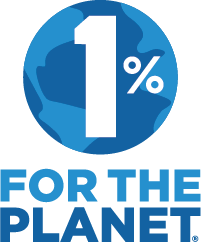CORPORATE TRAINING & DEVELOPMENT | HR’s Role in Translating Disability Insurance to Employees
We all presume we’re infallible — until we discover we are not.
This kind of denial meant Roy Tuscany did not check the box for disability insurance just two weeks before losing the full use of his legs in a skiing accident.
As a coach and freestyle skier, Tuscany assumed his own invincibility, believing he didn’t need to pay the small, extra monthly fee that could have saved him from financial ruin. “Since my injury was a life-altering disability, having disability insurance would have financially supported me,” said Tuscany, who overshot a 30-foot jump on a mountain near Lake Tahoe, California.
“The reality is stuff happens in life we don’t expect,” said Mike Wozny, president of Anthem Life and Disability. Hence, Tuscany’s tale: How much is HR liable for communicating what they are no longer accountable for? The answer should be obvious, regardless of who is responsible for providing the information: Management must start a conversation for its employees’ best interest.
Carol Harnett, president of the Council For Disability Awareness (CDA) and a clinician and physiologist in both sports and industrial medicine, has seen firsthand how dismissing disability insurance can financially change your life in the worst ways.
“It starts small, but it is not small for your family,” Harnett said of the inevitable cuts in the family budget when the paychecks stop coming. “I saw patients who couldn’t afford travel soccer for their kids anymore and, while not a big deal in the scheme of things, it’s a big deal to a 10-year-old.”
Before it gets this bad, HR should inform employees of often overlooked benefits and help them apply. To do this, redefining coverage must be communicated immediately.
“Disability insurance is probably one of the most unfortunately named products that exists. It really should be called income insurance,” said Harnett, who leads the CDA’s mission to educate consumers on how to protect and insure their income.
Hartnett cited the council’s “2014 Disability Awareness Study” that showed while 67% of working consumers saw their income as the second most important thing in their lives (other than their health), only 28% of Americans insured it.
“Forty percent of working consumers are insured for short-term disability, which for most people means the income stream available to them through this insurance product is three to six months. And only about a third of them are insured for long-term disability,” said Hartnett. “What keeps me up at night is knowing that about half of Americans have very limited — if any — savings and these funds would be depleted if someone became ill, injured or needed surgery. We know more than half of these employees couldn’t survive more than a month without an income.”
And that is not just the half of it. Harnett added another reason why HR needs to talk about insuring employees’ incomes. “We know that 54% of Americans only have access to subprime lending, which is scary, so even they would need to borrow at a very high interest rate,” Hartnett said.
“Best-case scenario for many people out of work is cutting out travel soccer for kids; worst-case scenario is you start to see people skipping meals, or eating poorly, because they can’t afford groceries,” she said. “I even had patients who lost their homes and found themselves moving in with their parents.”
Anthem Inc.’s Director of Life and Disability Product Management and Business Development Tracie Foster said health insurance assures an employee will get treatment if needed. Advocating that HR stay informed, recommending both Life Happens and the CDA’s Disability Can Happen websites, Foster said it is not just about indemnities information but also “helping employees make the best choices.”
Since The Affordable Care Act system overhaul, there is more reason to remind staff of the seriousness of the voluntary money matter with Foster explaining, “More effective communication and education around the value and cost of these voluntary benefits is critical to help employees make the best decisions for themselves and their families.”
More effective means more often and honest. Shifting the focus from first-of-the-year enrollment to year-round attention, Foster said it is also “important to focus the messaging on what’s truly going on in employees’ lives so the message is relevant and resonates with employees.”
David F. Keefe III, a financial representative with Eagle Strategies LLC in Waltham, Massachusetts, said a story like Tuscany’s “could change their mind” for employees considering disability insurance. Though there are a few factors, of course cost considered one, Keefe said, “Others could include lack of education, unaware of the risk they are taking.”
When speaking with staff, Keefe recommends reminding employees that without a paycheck their families will suffer. “Single people tend to be more inclined to take this risk” of not maintaining insurance, Keefe said. “It is an easy conversation when speaking to an individual who is responsible for others’ well-being.”
Clearly, there needs to be more conversation in the break room and in the bosses’ suites on how employees can protect their income. Bringing Tuscany’s story into the conversation, as Keefe suggested, could literally change destinies — as it has for the skier.
Tuscany became the founder of High Fives Foundation, a Truckee, California-based nonprofit that raises awareness about those who suffer life-altering injuries. “I was just uninformed about the benefits of having this type of insurance,” he said. “No matter what happens in life, enjoy every opportunity and try to protect yourself in every possible way.”





